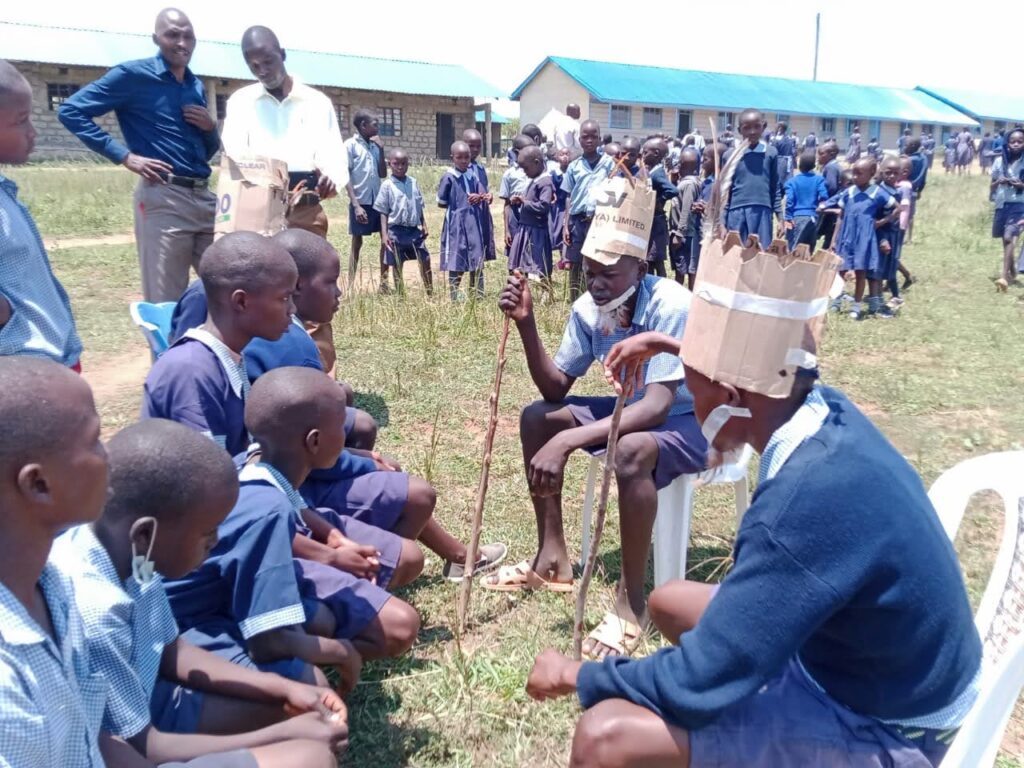By Matt Moran
See Mr. Matt Moran’s published article in the UCA News (Union of Catholic Asian News) on April 27th, 2023
Matt Moran is an author and writer focusing on religious, social, and international development issues. He is based in Cork in the Republic of Ireland.
Kisumu-Nandi border communities in western Kenya attest to conflict resolution initiative by Nairobi-based group.

Hostility between tribal communities is not uncommon in Africa and often leads to violence as they compete for scarce resources. Institutions here are too weak to deliver basic services to marginalized people.
The Nandi and the Luo are two tribes staying along the Kisumu-Nandi border in western Kenya. They have engaged in conflict over an ongoing dispute over land ownership dating back to colonial times. The hostile relationship has had devastating effects on the socioeconomic livelihood of individuals and communities.
Issues related to administrative boundaries, encroachment onto private land that emanated from a historical conflict between settlers and squatters, frequent cases of livestock theft, and deep-rooted ethnic distrust, caused cynicism, mistrust, and hatred.
Structural violence was evident in the lack of sufficient institutions to enable people to meet their basic human needs and actualize their potential which pervaded the general conflict environment.
It was against this background that the Nairobi-based Shalom Centre for Conflict Resolution and Reconciliation intervened in the Kisumu-Nandi region six years ago.
Today, members of the Nandi and Luo communities bear witness to the transformative outcomes and impact Shalom has had on their lives.
Given the context, conflict history, issues, and dynamics in the Kisumu-Nandi region, Shalom’s team conducted a comprehensive conflict analysis involving the local communities, administrative personnel, religious leaders, women and youth leaders, and other relevant stakeholders.
It focused its methodology on addressing the root causes of both manifest and structural violence by empowering local communities to be drivers and architects of their own peace process.
Over the years, 1,457 influential local peace actors were empowered with analytical skills and techniques through 82 conflict transformation and peace-building training workshops.
Shalom specifically developed strategies for addressing the ontological needs of security, identity, and equality of participation in its peacebuilding interventions.
Lenah Chemwor, a Shalom-trained community mediator, says members of the communities are empowered. “We now have the capacity to deal with inter-communal conflict promptly and more effectively. Peace awareness and participation in the broader community has enhanced our work in dealing with any arising conflict situations,” she said.
The conflict-torn areas were adversely affected by inter-communal violence once, but now are vibrant due to an increase in inter-communal trading, the opening of new industrial companies which have created employment, thus, growing the local economy and establishing the stability of socio-economic infrastructures.
“Trust takes time to build or to restore,” said Molly Omwa, a lead community facilitator.
She recalled how members of the Luo and Nandi tribes were exhausted by the inter-communal violence when Shalom entered the scene.
“Their intervention changed all that. Today, the language is about collaboration, cooperation, dialogue, and reconciliation, because they have changed our perceptions, attitudes, and behavior — communities have now embraced non-violent ways of resolving conflicts,” Omwa added.
Shalom has also made a significant contribution to promoting education in the region by providing material support to 15 schools that lacked basic infrastructure, teaching, and learning materials among other educational needs. This has benefited more than 12,700 pupils.
“We are ready to compete with other schools because Shalom has assisted us with science laboratory equipment,” said Paul Macharia, principal of St. Peter’s Soba Secondary School.
Jackim Otieno, head teacher at St. George Wuok Primary School, agreed with him as Shalom had indeed transformed the schools along the Kisumu-Nandi border which lacked even the most basic infrastructure for teaching and learning.
“Through its conflict transformation training, Shalom Peace Education Syllabus, pupils and parents have embraced inter-ethnic schooling. From the educational material support that we have received from Shalom, our academic grades have improved tremendously,” he said.
The introduction of the Peace Education Syllabus has been an enduring success of Shalom’s intervention, which led to the training of 16 peace club patrons and members and the formation of eight peace clubs, which have been actively initiating and leading peace activities in schools and communities.
Immaculate Akinyi Otieno, a head girl at St. George Wuok Primary School, said her generation wants their future to be defined by peace and co-existence through schooling and playing together as pupils from diverse ethnic communities.
“We thank Shalom for supporting our schools with classrooms, and empowering us with peace-building skills,” she said.
Benedict Olik Oloo, a community animator, said Shalom’s support and guidance had changed their lives. “This wonderful journey has convinced us that we can transform violent conflict into positive peace,” he said.
Father Patrick Devine SMA, the founder and international chairman of Shalom said their work has benefited hundreds of thousands of people from both communities living along the Kisumu — Nandi border.
“Communities are enjoying peace dividends, joint development outcomes, and sustained peaceful co-existence which is the aim of our conflict transformation and peace-building work throughout Eastern Africa. Our generous donors make it possible for our highly trained staff to carry out this essential development work,” he added.
He thanks Arthur Magero Abonyo of Shalom for helping research this news article.

